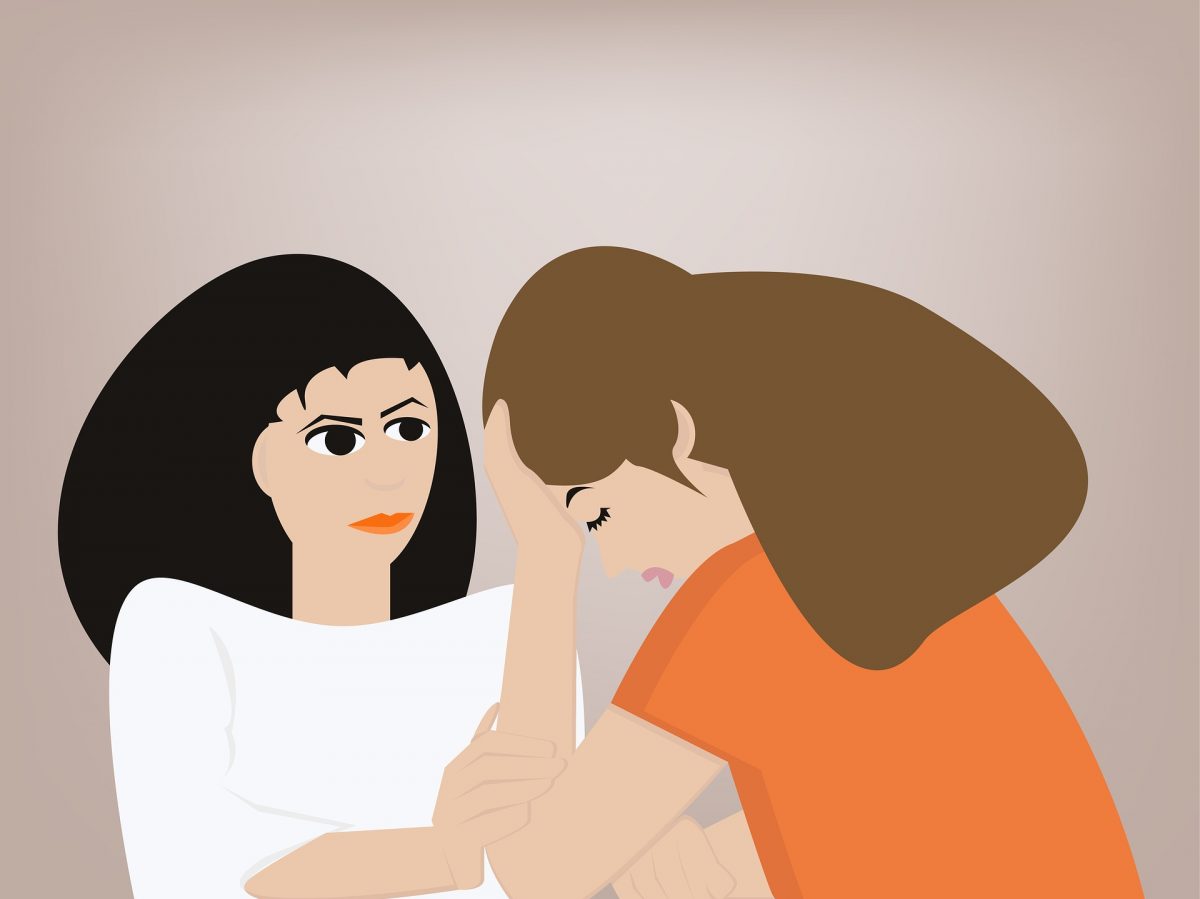
One of the Best Mental Health Lessons from Ted Lasso
Dr. Caroline Leaf – In this podcast (episode #348) and blog, I talk about the importance of compassion and forgiveness, and how these qualities impact our wellbeing.
I recently started watching a popular show on Apple TV called Ted Lasso. Some of you may have heard about it, and some of you may have even watched it already! For those who don’t know what the show is about, here is a brief description: (Spoiler Alert) Jason Sudeikis plays Ted Lasso, an American football coach who is hired by a football club in England (and by “football” here I mean what we call soccer). He knows little about soccer but takes the job anyway. We find out early on that Hannah Wadingham, who plays a character named Rebecca, is the owner of the soccer club. Rebecca recently got divorced from her husband, and they used to own the club together. Her former husband is a very prideful man who cheated on her and treated her badly. She ended up winning complete ownership of the club through the divorce settlement, and she wanted to hire an inexperienced coach so that she could ruin the reputation of the club and hurt her former husband Rupert (played by Anthony Head). Apparently, the club was one of the things her ex-husband loved, and she was trying to ruin it to hurt him the way he hurt her.
The character of Ted Lasso comes across as an all-around loveable and nice person. He truly wants to understand those around him, and he works hard trying to get to know people. From the very first episode, he starts to bring Rebecca homemade cookies, which she loves. There’s not a day that goes by that he does not do this small act of kindness.
Rebecca, however, is so focused on her revenge that she disregards the people that she has in her life in the present, including Ted. She has an assistant named Higgins (played by Jeremy Swift) who she constantly puts down, who himself is facing a moral dilemma because he wants to work for her but does not feel good about helping her destroy the club. Her best friend Flo, played by Ellie Taylor, has a daughter who Rebecca has lost contact with over the years, even though she is her godmother. In the show, we witness an exchange between them when Flo tells Rebecca that her daughter misses her godmother and can’t understand why she isn’t in her life anymore.
Meanwhile, Rebecca, in her mission to ruin the club, hires paparazzi to take photos of Lasso with Keely (played by Juno Temple), the girlfriend of one of the club’s star players, to make it look as if they were romantically involved. This would have severely hurt both Keely and Ted’s reputations and affected the morale of the whole team. Thankfully, in this particular episode, Keely manages to stop the story from being published. Yet Rebecca still tries to do this even though Ted and Keely had been so kind to her.
While watching this all play out, I noticed a connection between how much pain Rebecca was in from the trauma that she experienced from her divorce AND how much pain it was causing her and the people in her life as she held onto her anger and tried to get back at Rupert.
Of course, I believe that Rebecca’s anger is valid, and that the character of her ex-husband is an awful person who used and mistreated her. Her experiences are very real, and affected her mental and physical wellbeing. Our experiences are wired into the brain by the mind, which, in turn, can affect how we feel and our overall health.
However, Rebecca felt that the only solution to her pain was to hurt Rupert in a similar way, and that this was also causing her pain. Rebecca was constantly worrying about her plan for revenge, which made her overlook the incredible people who were still in her life. For example, when Keely found out that Rebecca hired the paparazzi, she was extremely hurt because of the friendship they had developed, and she felt like Rebecca had broken her trust. Likewise, Rebecca’s assistant Higgins ended up quitting because he was suffering emotional trauma from the way that Rebecca treated him and did not like being a part of her plan to ruin the reputation of the soccer club.
A defining moment in Rebecca’s life occurred in episode 9 of season 1, where she found out her ex-husband was having a child with his new fiancé. This was one of the hardest things to watch because you can clearly see Rebecca’s deep feelings of pain and grief. It was clear that she had always wanted a child while she had been married Rupert, and he had made her put it off. Now, she has lost her opportunity to become a mother, and this news broke her.
Her response to the whole situation was still incredible. She could have shut down and gotten more bitter, and tried even harder to get revenge on her husband. But instead, there was a shift in her mindset—she chose to change the way she reacted to what was happening to her and hope <-?? her experiences played out in her brain, body and life. Rebecca decided to confess to Ted about how she organized the paparazzi and how she only hired Ted to ruin the reputation of the club. She admitted everything, and reached out to the people in her life when she was in a place of extreme brokenness. Ted responded with so much forgiveness and compassion that it completely shocked Rebecca. She fully expected anger and hate from him because those were the emotions she experienced from her ex-husband, and those were the emotions that had dominated her mind because of the grief and trauma of her ugly divorce.
But this anger and desire for revenge had only made her brokenness worse. Rebecca realized she was not able to ever fully heal as long as she stayed in this dark mental place. When she experienced Ted’s compassion, she suddenly felt free from the pain she was experiencing—it didn’t just go away, but she did realize that it didn’t have to dominate her life. There was another way to live! You could literally see this change in her facial expressions and her whole body, as if a huge weight had been lifted off her shoulders. It’s as if she was finally able to let go of the toxic anger that was breaking her down because someone she respected accepted and loved her, despite everything that had happened.
This is such a crucial scene in the show because it shows how extremely important it is to surround yourself with people who will love and accept you, especially in the moments when you feel broken. It also shows that you never know how you will impact someone if you show love and compassion and have grace—you could literally end up transforming a life!
At the end of the day, all human beings need compassion and understanding. We are all struggling, and we are all a little bit broken. Sometimes our brokenness causes us to do things that may hurt other people in our life. But true healing comes when we can seek out help and receive love—when we feel safe enough to admit where we made a mistake, and can see how we are all connected and how our actions impact others.
We all need all the help we can get as humans in an ever-evolving, hugely complex world, including large doses of gentleness, kindness, and compassion for each other as well as ourselves. We need a new narrative, one where we listen to each other’s narratives and problem-solve through them together.
As I discussed in a recent blog and podcast, the brain functions best with a flexible, dynamic balance between specialized, locally segregated activity, and more generalized global integration. Too much segregation and excessive integration can lead to suboptimal functioning. What does all this science mean? Research has shown that training yourself to be more kind and compassionate to both yourself and others can increase your positive emotions, sense of social connectedness and pro-social behaviors, while decreasing your negative feelings, stress and social biases, all of which improve your brain integration, balance and health.
This is also why forgiveness and grace are so important. Research shows that the details of a transgression, which can hold us in a viselike grip, are more susceptible to being reconceptualized and even forgotten when we forgive. Unforgiveness keeps the toxic thought tree strong and powerful in your brain, which impedes your healing because it’s still “connected to the source.” This is due to the law of entanglement in quantum physics, which keeps everything in a relationship— toxic or otherwise—entangled, affecting each component. When we forgive, we actually grow a part of our brain called the anterior superior temporal sulcus (aSTS); the more we grow this area, the easier it will become to manage the pain of a trauma or toxic experience.
To read the original article click here.






